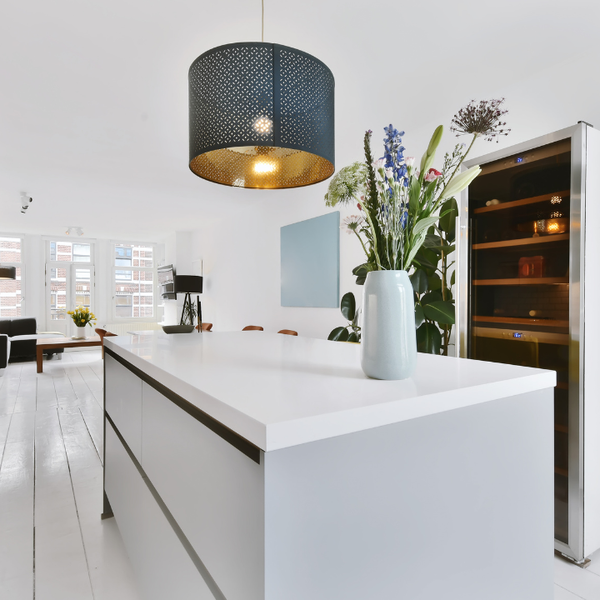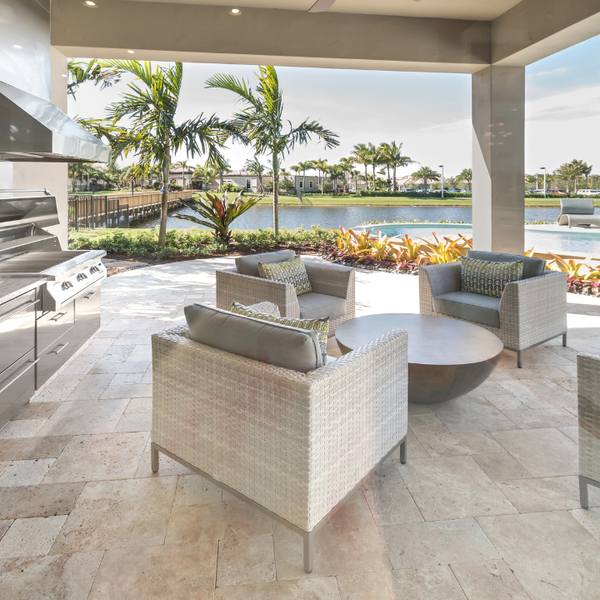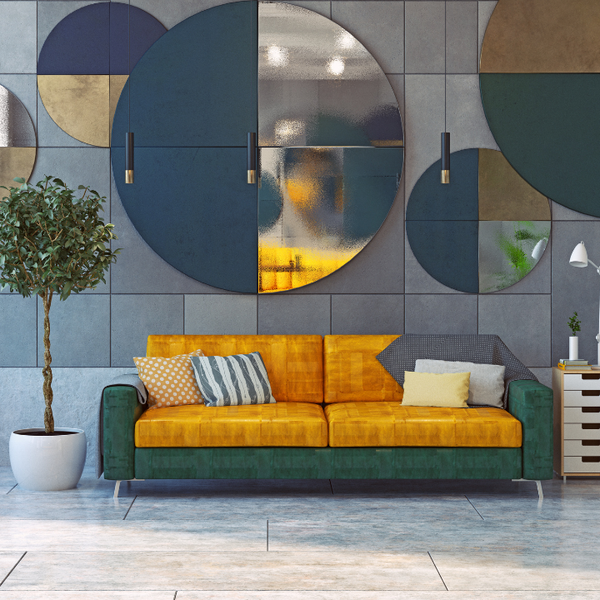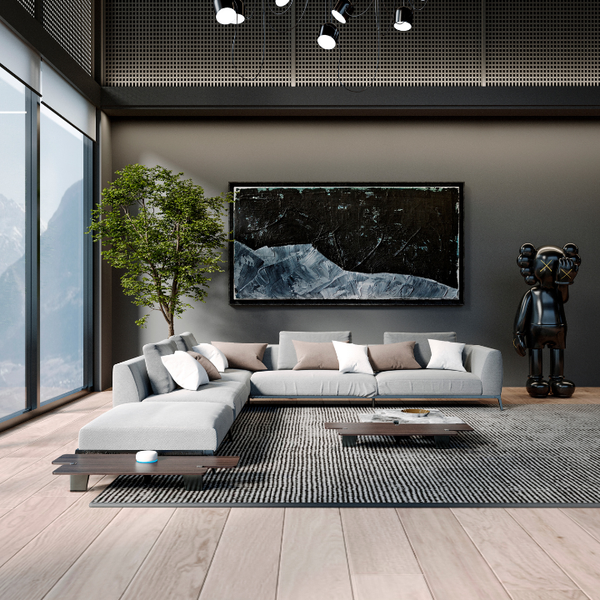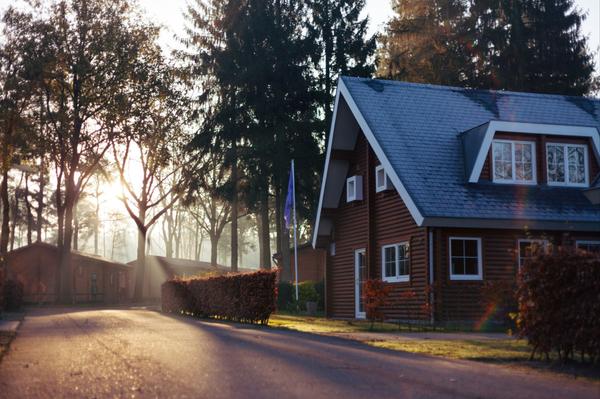How to Choose the Best Flooring for Every Room

Finding the perfect flooring for your home goes beyond just picking something that looks nice. You need to consider factors like moisture, durability, and cost, as well as the specific needs of each room. Because of this, you might end up choosing different flooring types for different spaces.
Explore these 7 flooring options for every room in your home, and find the perfect match with confidence. Thanks to advancements in design and technology, many flooring choices that were previously overlooked now present exciting new possibilities, offering you greater creative freedom.
Linoleum Flooring

Linoleum is a natural flooring option made from linseed oil and wood byproducts. Unlike vinyl, it's available in tiles or sheets, but it’s less common. People who choose linoleum often appreciate its natural qualities and unique look, making it a popular choice for kitchens, bathrooms, or even home gyms.
This flooring is extremely durable, handling heavy use and resisting scratches for many years. Linoleum offers a wide range of colors, from subtle neutrals to bold, bright shades. The color goes all the way through the material, so it won’t wear off over time. You can choose between sheets or tiles, with sheets allowing for creative designs using borders and insets, while tiles can be arranged in countless patterns.
Advantages: Linoleum is eco-friendly, adding to its appeal. It’s made from renewable materials like linseed oil, cork dust, and wood flour, and is biodegradable and recyclable. This flooring is soft underfoot, making it comfortable to walk on, and it’s resistant to fading from sunlight. It’s also antistatic, meaning it repels dust and dirt, making it easy to clean and hypoallergenic. Plus, it doesn’t contain harmful chemicals like VOCs, contributing to better indoor air quality.
Disadvantages: However, linoleum isn’t as tough as vinyl. It can wear down with heavy use and may scratch or dent easily. It’s also sensitive to moisture, which can cause it to expand or contract. Applying a wax finish can help protect the surface, but it adds to the upkeep.
Cork Flooring

Cork flooring is made from the bark of cork trees, a renewable resource, making it an eco-friendly option. This type of flooring is known for its warm, soft feel underfoot and is often praised for its comfort. Cork is available in tiles or planks and comes in various colors and sizes, offering flexibility in design. It’s also a natural insulator, helping to reduce noise and lower energy costs. Cork flooring can be left in its natural shade, stained, or even painted to match your style.
Advantages: Cork is one of the most comfortable flooring materials, thanks to its light, cushioned texture. It’s water-resistant and remains non-slip even when wet, making it a great choice for kitchens and bathrooms. Additionally, cork is non-toxic and eco-friendly, contributing to a healthier indoor environment.
Disadvantages: However, cork can fade if exposed to direct sunlight for long periods. Lower-quality cork flooring is more susceptible to damage, such as scratches from heavy foot traffic, furniture, or pets.
Tile Flooring

Tile flooring is a go-to choice for areas prone to moisture, like bathrooms, kitchens, and utility rooms. The two main options for tile flooring are ceramic and porcelain. Ceramic tiles are made from a mix of water and sand, making them softer and more budget-friendly. Porcelain tiles, on the other hand, are crafted from denser clay and fired at higher temperatures, making them harder and less absorbent.
Advantages: Tile floors offer a timeless look and come in a wide variety of colors and styles, from intricate mosaics to large tiles with minimal grout lines. All tiles are water-resistant and easy to care for. Porcelain tiles are especially durable, resisting scratches and dents. High-quality tiles last a long time and are simple to clean. They don’t trap allergens like dust mites or pet hair, making them ideal for those with allergies.
Disadvantages: The biggest downside to tile flooring is the challenging installation process. Tiles need to be placed in mortar on a smooth, stable surface, and unless you’re highly skilled, it’s best to hire a professional. Additionally, porcelain tiles can be expensive, comparable in cost to solid wood flooring.
Concrete Flooring

Concrete flooring offers many practical benefits. It's incredibly durable, making it a long-lasting option for both residential and commercial spaces. It is easy-to-clean surface and resistance to water and noise make it a practical choice for high-traffic areas. Concrete floors can also work seamlessly with underfloor heating systems, which provide even warmth throughout the room.
You have a range of finish options to choose from, including matte, polished, and various textures. Additionally, concrete can be customized with colors, stones, or glass beads to create a distinctive look that complements your style.
While concrete flooring is a basic material, it's become a favorite among designers for its modern appeal. It can be installed in various shades and can be treated with methods like acid staining or stamping to produce unique patterns.
Pros: Concrete floors are known for their durability and ease of maintenance. They also work well with radiant heating systems, which can be embedded during installation for added comfort.
Cons: Concrete floors can be expensive due to the need for professional installation. The material is hard and may require resealing every year or so to maintain its appearance and prevent staining.
Stone Flooring

Natural stone floors are highly valued for their beauty and uniqueness. Each piece of stone has its own patterns and colors, making every floor one-of-a-kind. Stone flooring can complement various styles and, like wood, often adds value to a home. There are three main types of stone used for flooring:
Sedimentary Stones: These include travertine and limestone, formed from layers of minerals and organic materials.
Igneous Stones: Examples are granite, created by volcanic heat and pressure.
Metamorphic Stones: Marble and slate fall into this category, having transformed under extreme heat and pressure.
Pros: Stone floors offer a distinctive look and are highly durable, handling heavy foot traffic and resisting fading from sunlight. They also help reduce dust and allergens. Stone tends to stay cool, which is great in the summer, and it conducts heat well, making it a good option for underfloor heating systems. Although expensive, stone floors can last a lifetime with proper care.
Cons: Stone flooring comes with a high price tag and needs professional installation. It’s hard underfoot, so dropped items are likely to break. Many types of stone also need sealing to prevent stains.
Carpet Flooring

Carpet remains a favored option, especially in regions with colder climates, due to its ability to provide both warmth and comfort. Its soft texture adds a cozy feel underfoot, which makes it a top choice for spaces where people often walk barefoot, such as living rooms and bedrooms.
In the U.S., tufted carpets dominate the market. These carpets feature nylon fibers that are inserted into a backing made of polyurethane. This method is cost-effective and produces a variety of styles. On the other hand, woven carpets, which are more common in Europe, are crafted by weaving yarns (usually wool) together. These carpets are generally more expensive due to their complex manufacturing process.
Pros: Carpet offers significant benefits, including exceptional comfort and a wide array of colors and patterns. It’s relatively affordable compared to other flooring types and is easy to install. Maintenance is straightforward, requiring only regular vacuuming. Additionally, carpets that are designed to be stain-resistant simplify cleaning and upkeep even further.
Cons: One downside of carpet is its tendency to trap dirt and dust, which can be problematic for individuals with allergies. While tufted carpets may hold more dust, woven carpets and wool options are better at resisting these issues due to their construction. Wool carpets, in particular, have natural anti-static properties that help prevent dust accumulation.
Hardwood Flooring

Hardwood flooring is made from solid wood planks, available in varieties like maple, oak, walnut, and cherry. It's a popular choice because of its classic look, durability, and versatility. Hardwood floors add a timeless charm to both historic homes and modern designs, fitting well with many interior styles.
There are two main types of hardwood flooring: solid wood and engineered wood. Solid wood flooring is made from one piece of wood, while engineered wood consists of a thin layer of real wood on top of multiple plywood layers. Both types come in various species, with oak, ash, maple, and walnut being particularly popular.
Pros: Hardwood floors are known for their warmth and beauty. They can be sanded and refinished several times, so with proper care, they can last for decades or even longer.
Cons: Hardwood flooring is generally expensive. Even though some types are cheaper, it still tends to be one of the pricier options. Additionally, it can be prone to scratches and dents. Solid wood flooring can also expand or contract with changes in humidity, which might cause cracks, splinters, or squeaks. Engineered wood handles moisture better, making it suitable for places like kitchens and basements.
Contact Us!
At Luxe Omni Realty, we're dedicated to meeting all your real estate needs with expertise and personalized service. Whether you're buying, selling, or investing in property, our team provides tailored solutions to ensure a smooth and successful experience.
If you have any questions or need assistance with your real estate goals, don’t hesitate to reach out. We're here to provide answers and support every step of the way. Contact us today to learn more about how we can help you achieve your real estate objectives.
Categories
Recent Posts


